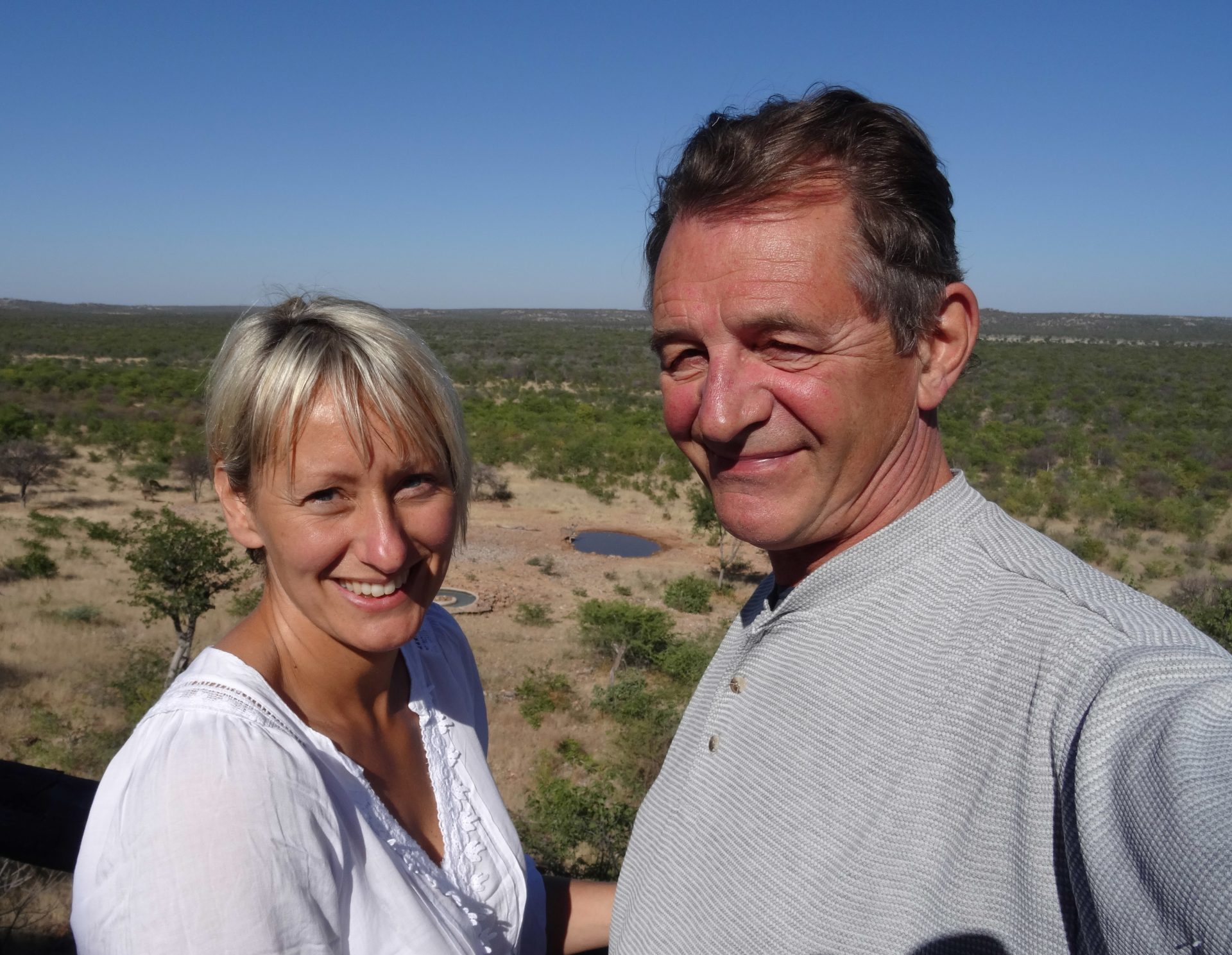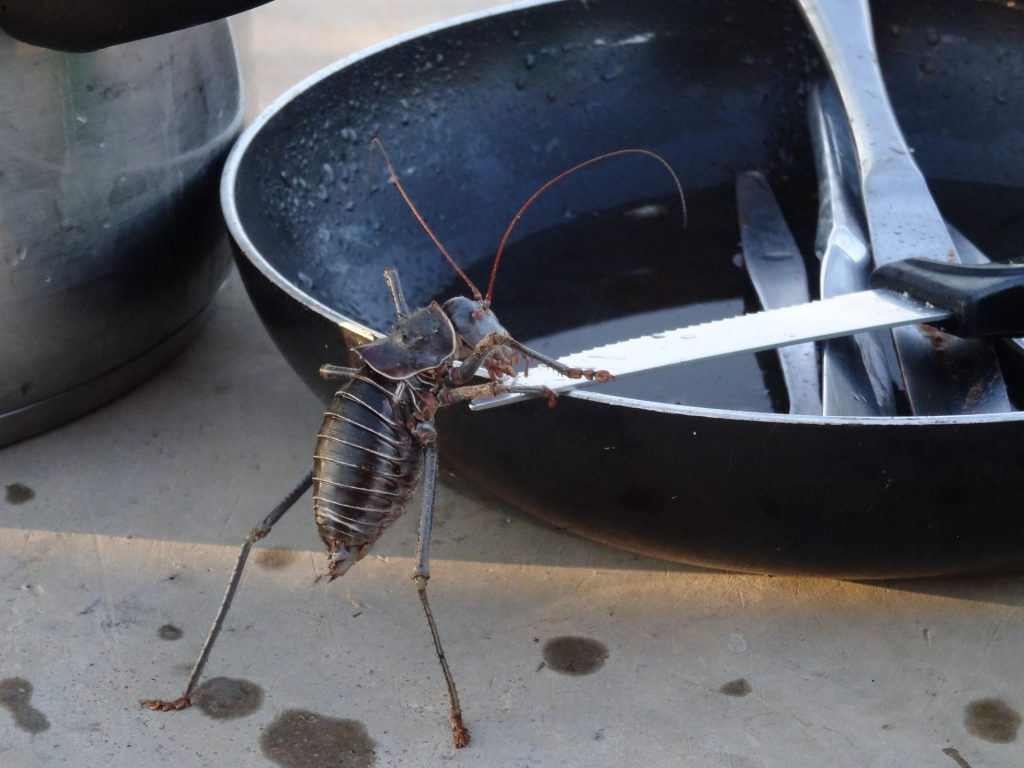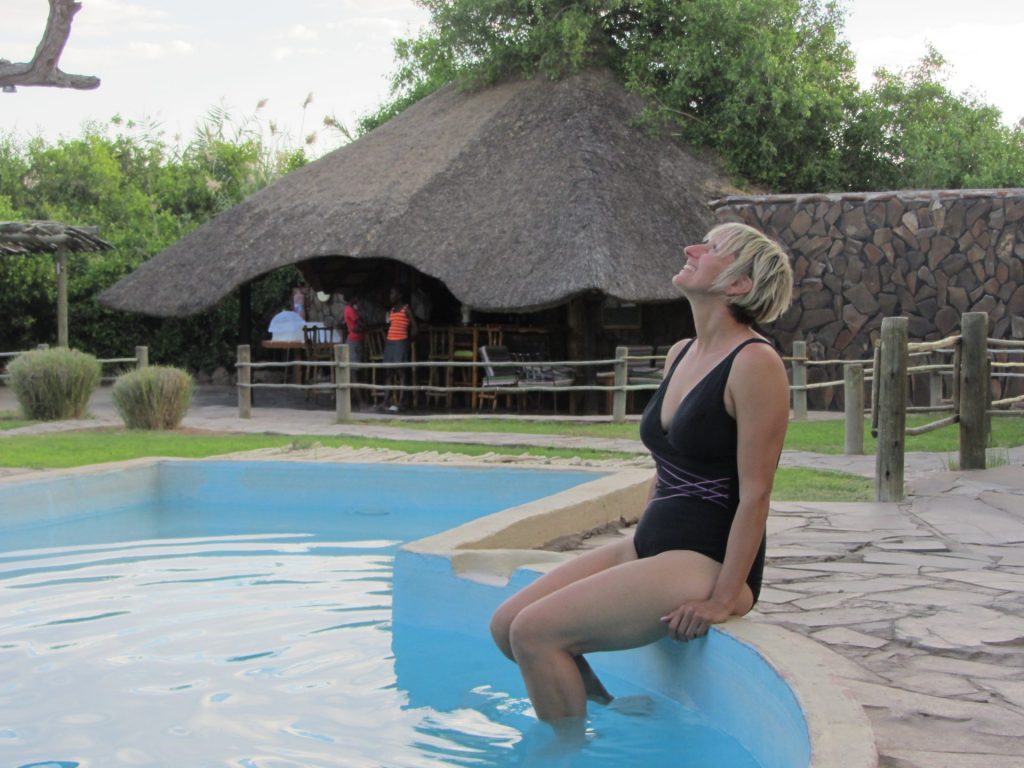Today we will continue northeast to the outskirts of the Etosha National Park. This will be the first night in Namibia for which we don’t have an overnight reservation. We’re passing through a gigantic pass, lush with Mopani trees, dominated by the Grootberg, Namibia’s answer to Table Mountain. We stop in Kamanjab, a bustling little town in northern Damaraland with a wild frontier feel about it, which boasts a decent general store and a petrol station. The Sentra supermarket is busy, the car park out front a melee of assorted bakkies and minibus taxis. There are plenty of beggars and drunks too – harmless but a bit intimidating as they jostle for our attention, especially intimidating for Jo, who hasn’t seen a mob like this since we arrived in the country. I spend a few moments allaying her fears, after which we indulge in a great Namibian shopping spree – lots of meat, fruit & veg, wine & beer. There’s a local free magazine at the checkout and scanning through it, I notice an ad for a small campsite not far from Etosha’s western Galton Gate, about three hours from here.
Nico, a tanned, rugged white Namibian guy in khaki shorts is unloading food and crates of booze from his bakkie. He’s just returned from a shopping trip to Windhoek and he’s delighted to see us. We’re his only guests although he has lots of bookings for next week. The restaurant is closed but he serves us cold beers by the pool. His campsite is a couple of miles away. “Follow me”, he says. “I’ll show you”. We see our first family of warthogs, tails erect, trotting down the road. After a life spent watching Disney cartoons with her children Jo is compelled to say “Look, Pumba”.
Nico’s campsite is a remote field of acacia trees, termite mounds and assorted brick constructions: outhouses, elaborate brick braais and a kiln connected to a vast metal water tank. He briskly scales the scaffolding supporting the tank to check the water level, and lights the kiln fire. Hot water in an hour, he says. He tells us that the Western Gate into Etosha has only recently opened to the public and gives us directions.
We are a long way from human habitation and this region is renowned for its night time darkness. That designation is a bit of a misnomer. What it really means is there’s no light pollution rendering the night sky one of the brightest imaginable. We lie on a mattress outside, drink a bottle of fine Rust en Vrede red wine, and behold the universe. But we’re in a wild place and there are strange noises out there; purring, snuffling, howling, screaming. Baboons? Maybe. Time to get back into the safety of Sputnik. Later, it must be about 3am, Jo needs to go outside for a wee. She uses what she fondly calls a bog in a bag – a collapsible potty made up of a simple frame in which rests a small plastic bag. I follow her out to wee behind a bush. There’s a sudden scream, something is moving in the bush. Jo stumbles into me, there’s a big bird rising up from the tree next to us, an owl, a very big eagle owl. Jo’s back inside Sputnik, I’m frantically scanning the bush and the sky and I’m standing in something warm and wet. It’s chaos out here. I pull myself into the van. “Christ”, I say, “I’ve put my foot in the bog”. Jo laughs. Not funny. Not funny at all.
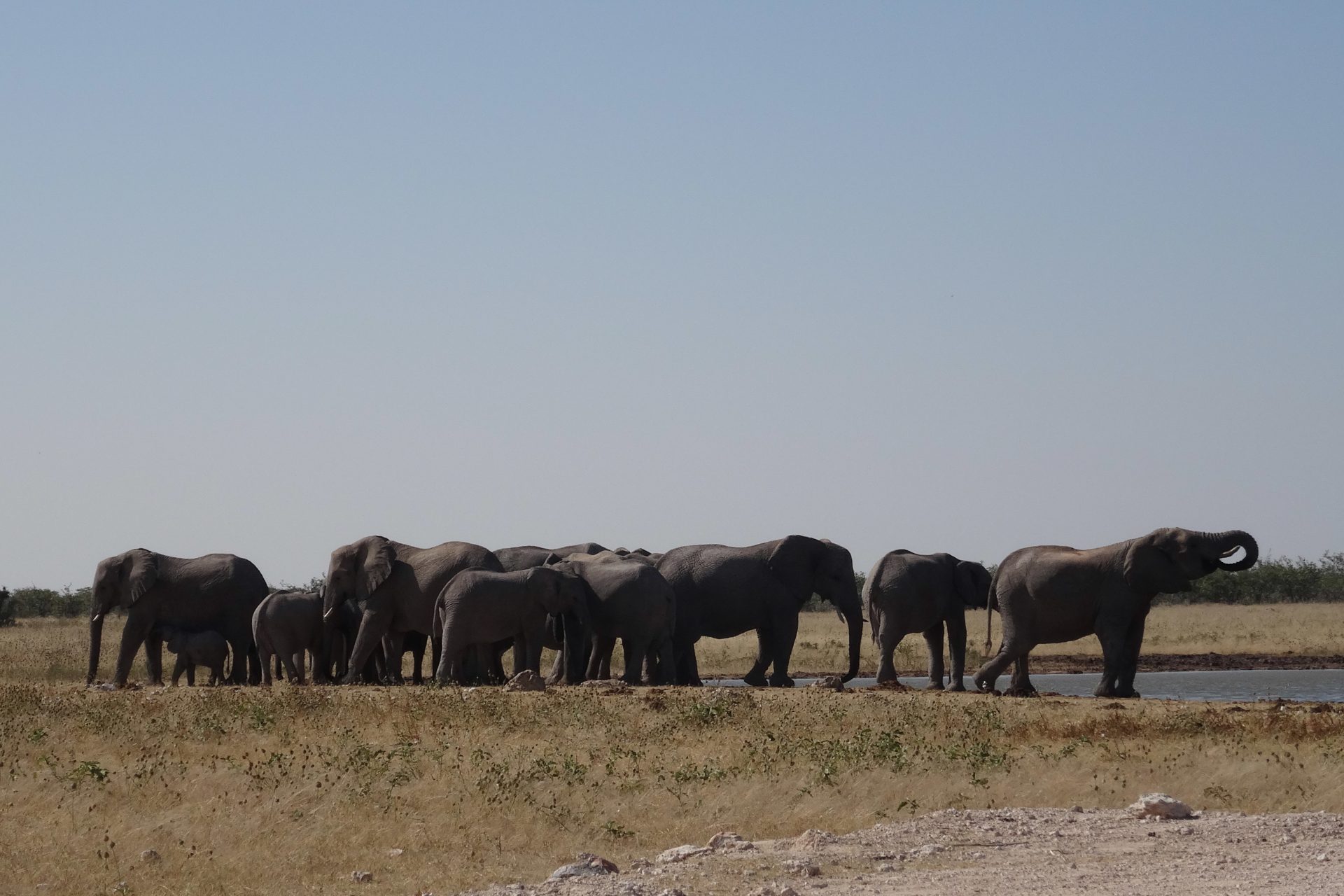
Day 11
We arrive at the Galton Gate early on Sunday morning. Somebody had told me to drive straight through the gate and stop a couple of miles further on at the ranger station to pay our entrance fee. I do this and notice that there’s a Land Rover pulling up fast behind me. He’s driving very close, now flashing his headlights at me. I slow down thinking he wants to pass. He pulls alongside. “You must pay. You must pay” shouts the African driver. “I’ll pay at the Ranger Station”, I reply. “No you must go back and pay at the gate”. I’ve been ill advised and feel like a thief. I turn around, drive back to the gate and sheepishly apologize to the woman at the gate lodge who nonetheless issues our permit with the usual African smile. Jo buys a detailed map of the park’s lodges, campsites, picnic areas and waterholes. It will prove to be invaluable.
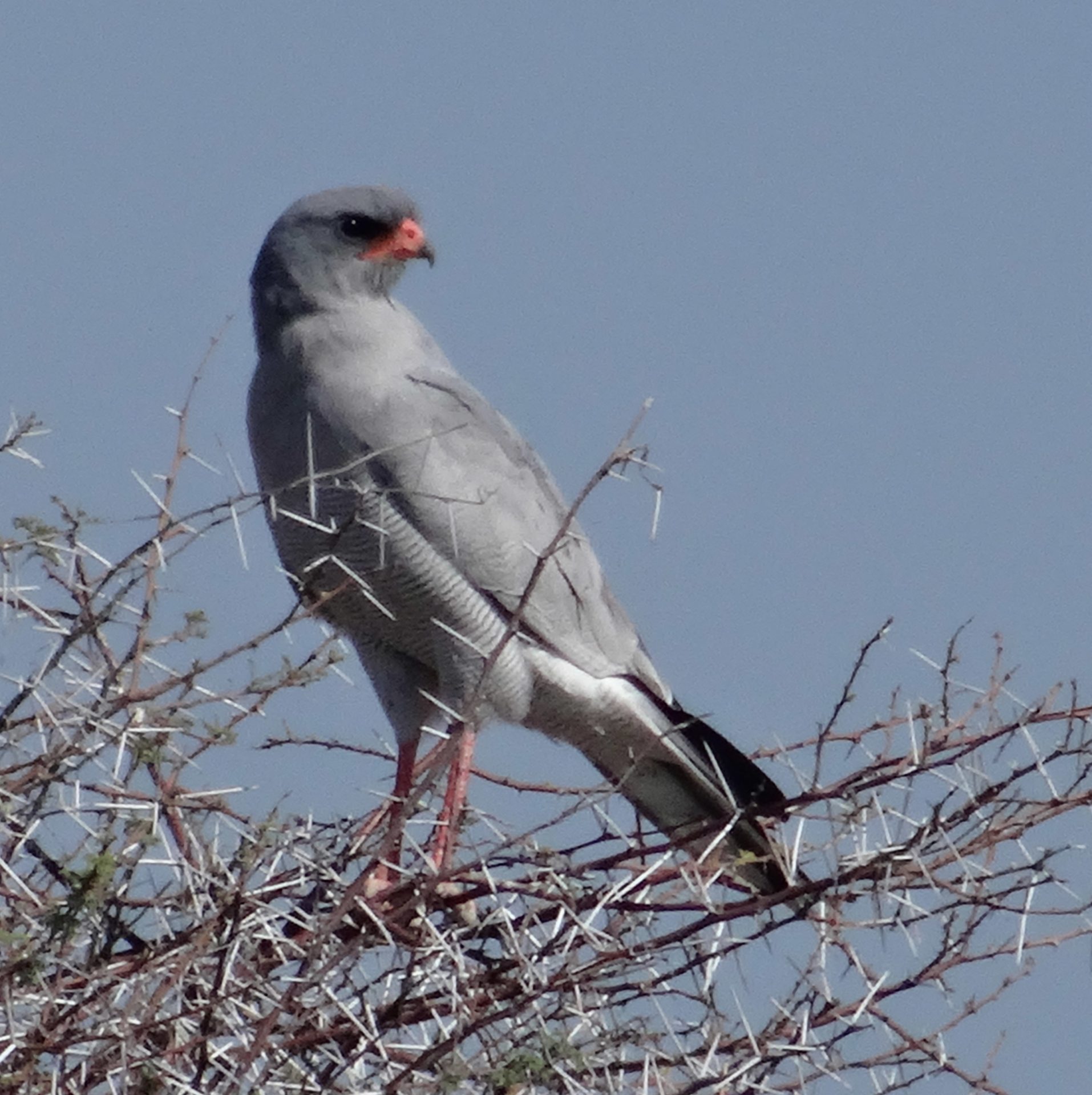
We are in the magnificent Etosha National Park, an 8,600 square mile park set around the vast 1,840 square mile Etosha salt pan and interspersed with waterholes attracting hundreds of mammals, birds and reptiles, including several threatened and endangered species such as the black rhinoceros. Etosha receives only two hundred thousand visitors a year. To put that into perspective, Devon and Cornwall, tiny in comparison, get over two million visitors a year.
After only a few miles we see herds of elephant, zebra, giraffe, kudu, wildebeest, spiral horned eland and of course lots of springkok. We stop every few miles, the slower the better. Most of the waterholes are named, and many have their own unique characteristics attracting specific animals. We pass about fifteen today. We drive to the western shore of the pan and then south to the Anderson Gate. The pan itself is an arid salt encrusted flat which only briefly holds water in the summer. It can only be a brief visit to the park today as we must check into Ongava Lodge, just outside the park, beyond the Anderson Gate.
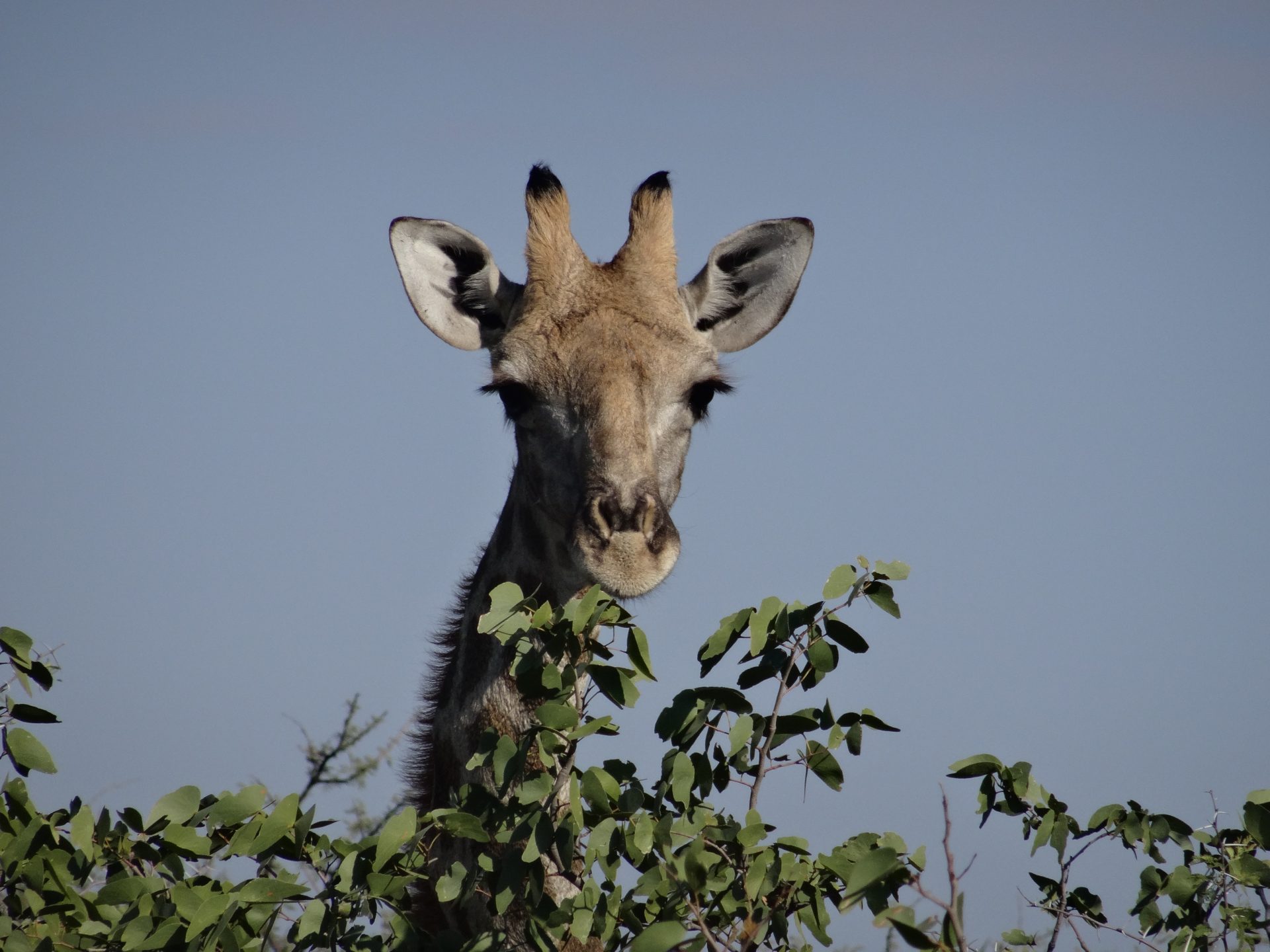
Ongava is a very special place; a stunning five star lodge, set upon a hill, on the edge of the Ondundozonanandana mountain range, overlooking its own private reserve. Even Sputnik gets its own thatch covered carport. Porters and a steward with drinks and cool face towels are here to greet us. Jo steps up into the rear of the vehicle to retrieve her suitcase when she utters a squeal of anguish. She has done something to her lower back and remains frozen on hands and knees in Sputnik. The Lodge staff are initially perplexed, probably thinking: “Poor old girl. Is she always like this?”. We explain that it’s a sudden malady.
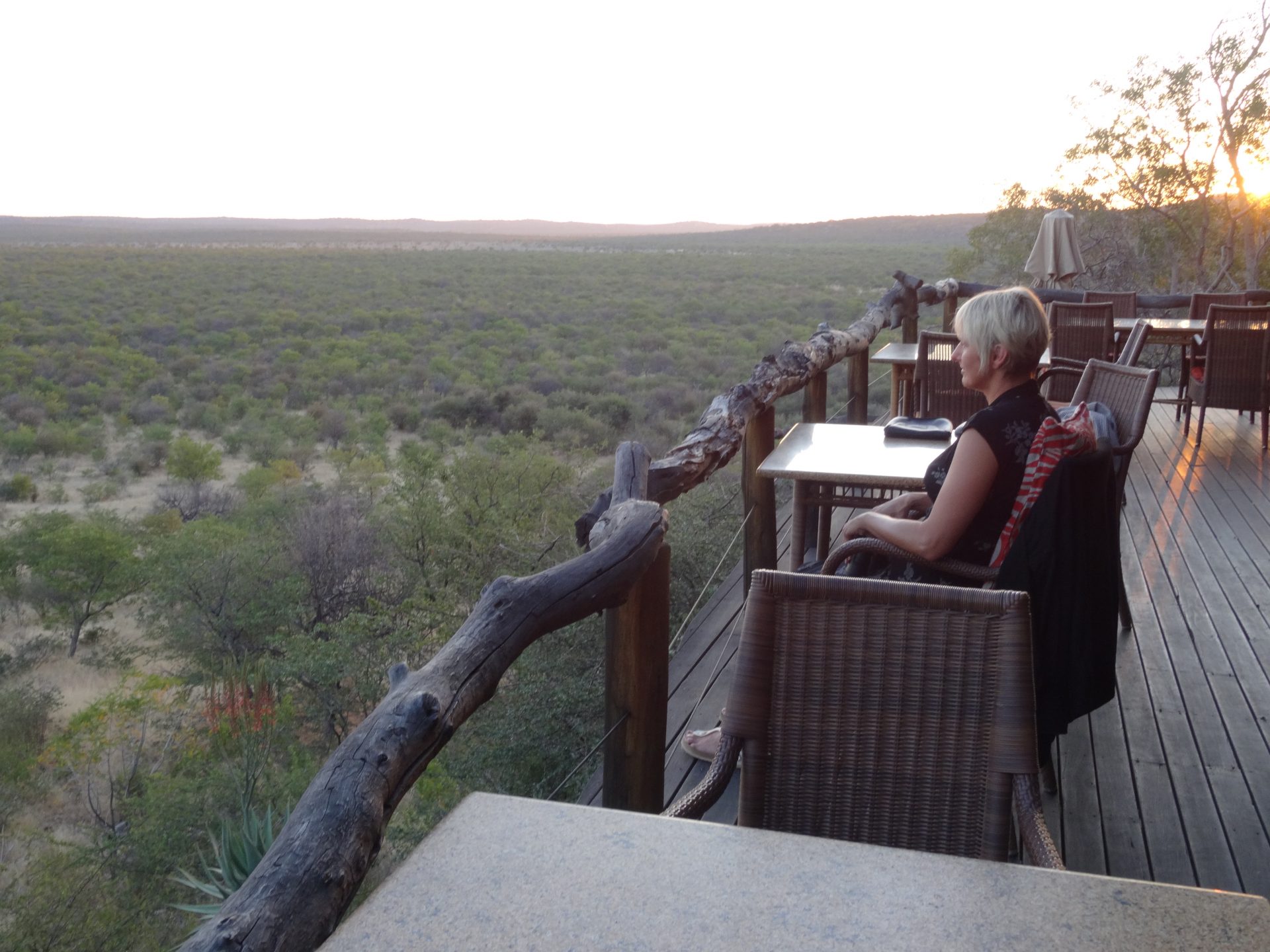
Another porter is summoned and Jo and I make the long laborious climb up the steps to the lodge. This isn’t the first time that she has been afflicted with this problem. She knows she’ll be immobile for the next few days, which is painful and unfortunate, but the timing couldn’t have been better. We’ll be based here for two nights/three days. It’s luxurious; we’re staying in a rock and thatch en-suite (including a private open air shower) chalet with a view of the waterhole from the bathroom. There’s a pool, and comfortable chairs on the long deck overlooking a waterhole, floodlit at night, with a panoramic view of the African plain. All in all, not an awful place to recuperate.
It’s 8pm. We’re sitting at a dining table overlooking the floodlit waterhole. It’s a warm evening and Jo, despite her very sore back, is very relaxed. We’ve just finished dinner, and we’re onto a second bottle of decent Namibian Viognier white wine. It’s like waiting for Act One of a stage performance. Initially a couple of giraffes slowly approach, an adult female and an adolescent. Everything happens in slow motion. They both stand stage right, unmoving for ten minutes or more. The adolescent takes a few steps forward and all is still once more. The mother seems to be standing guard whilst the youngster steps cautiously to the water, spreads its front legs, and drinks. The mother cautiously follows and adopts the same position. They are naturally very vulnerable in this position but they drink slowly. A kudu approaches, followed by three white rhinos and a black one. It’s quite fantastic. And then, if that wasn’t enough, another black rhino arrives and her baby. We watch, captivated by the scene for a couple of hours.
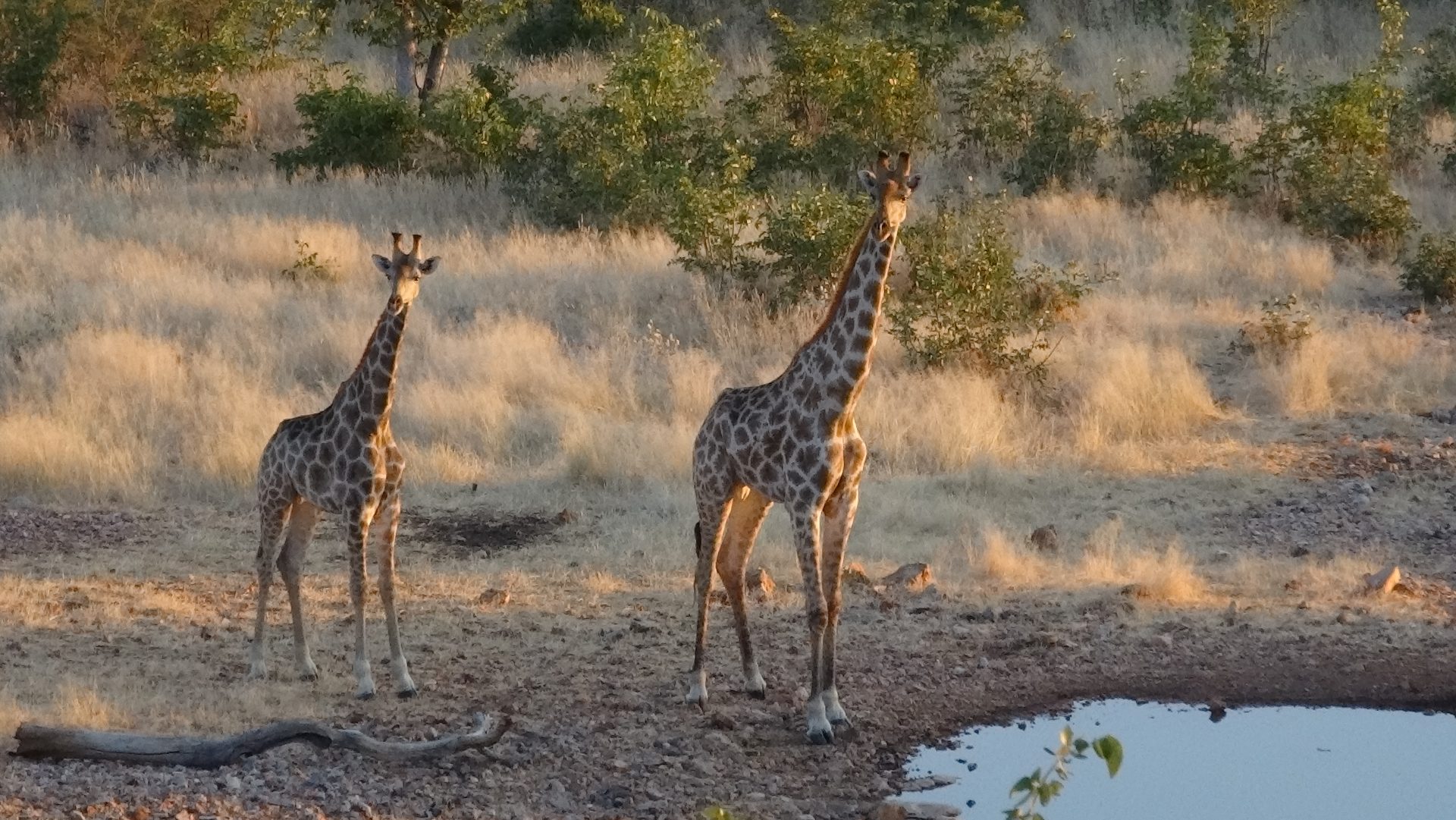
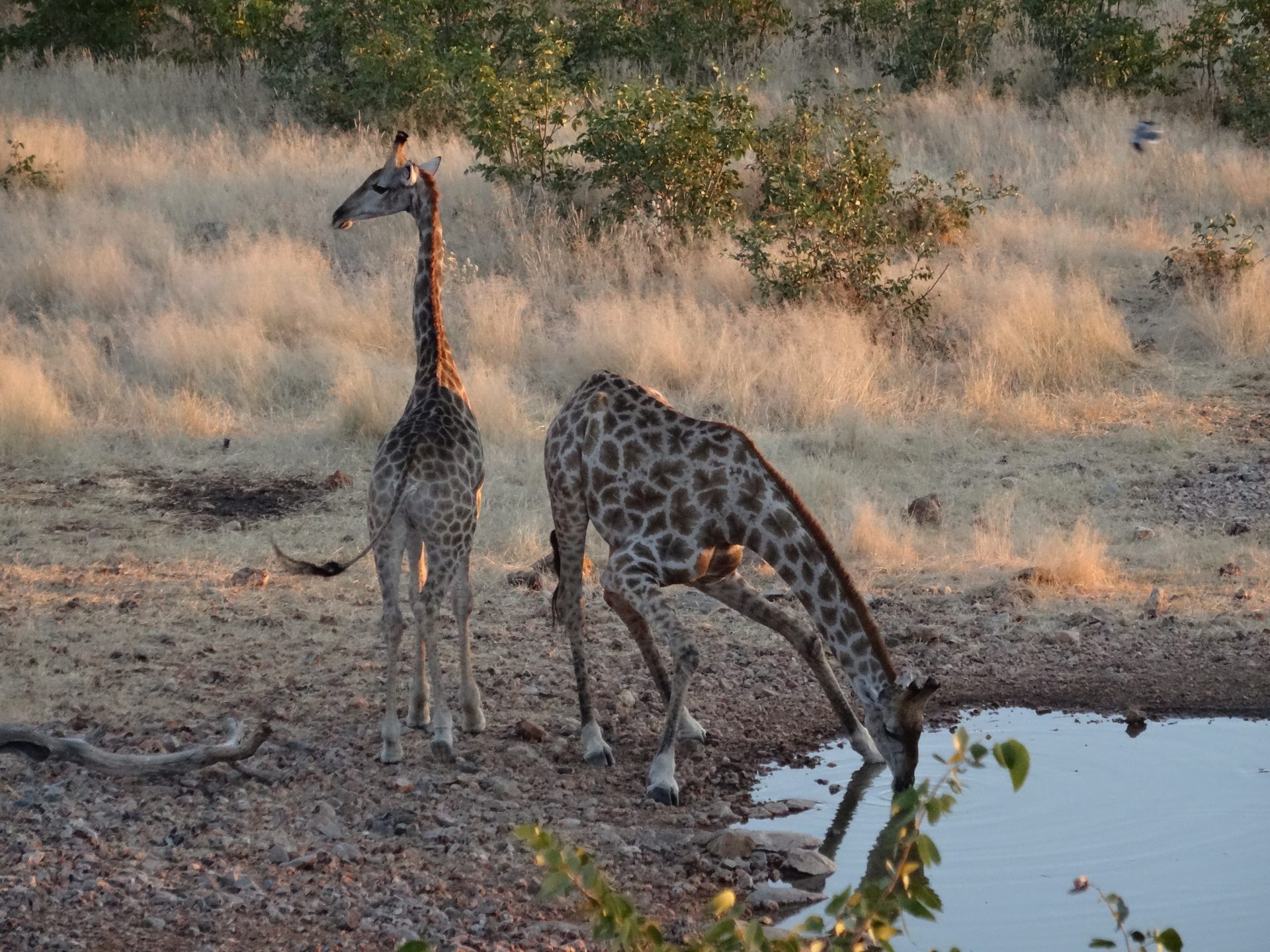
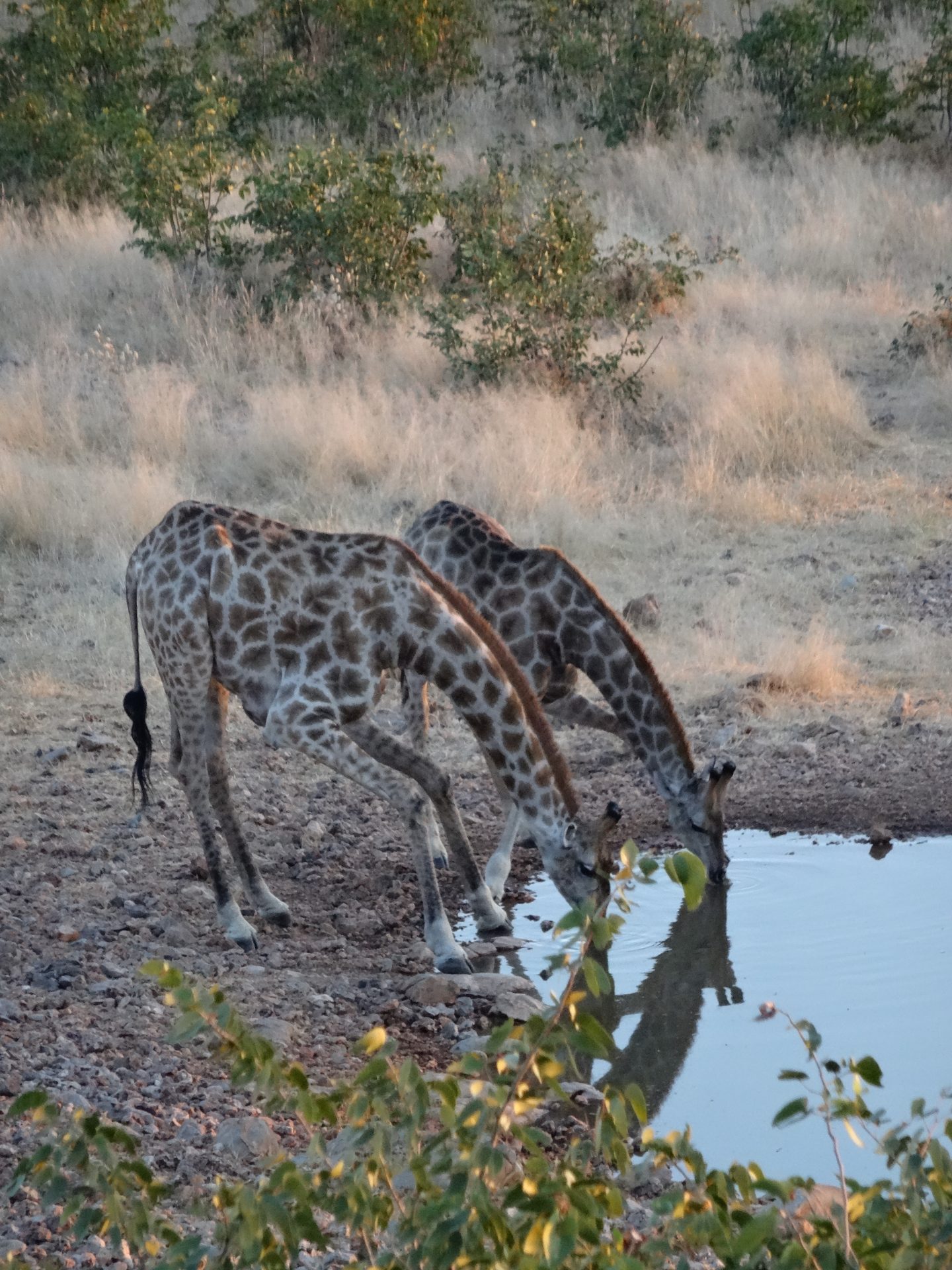
Day 12
We’re awoken the following morning by the sunlight and the birdsong. It’s a slow walk for Jo along the raised wooden walkway to the main lounge. After breakfast, to relieve the pain in her back, she spends an hour in the pool, after which she sits comfortably in the lounge, or at a table overlooking the waterhole, writing her diary, editing photographs, chatting to her children and helping them with their homework on Skype. I swim too, sunbathe, wander about the lodge, chat to the staff, read, write and birdwatch. It’s great to feel as though we’re doing nothing, luxuriating in this paradise.
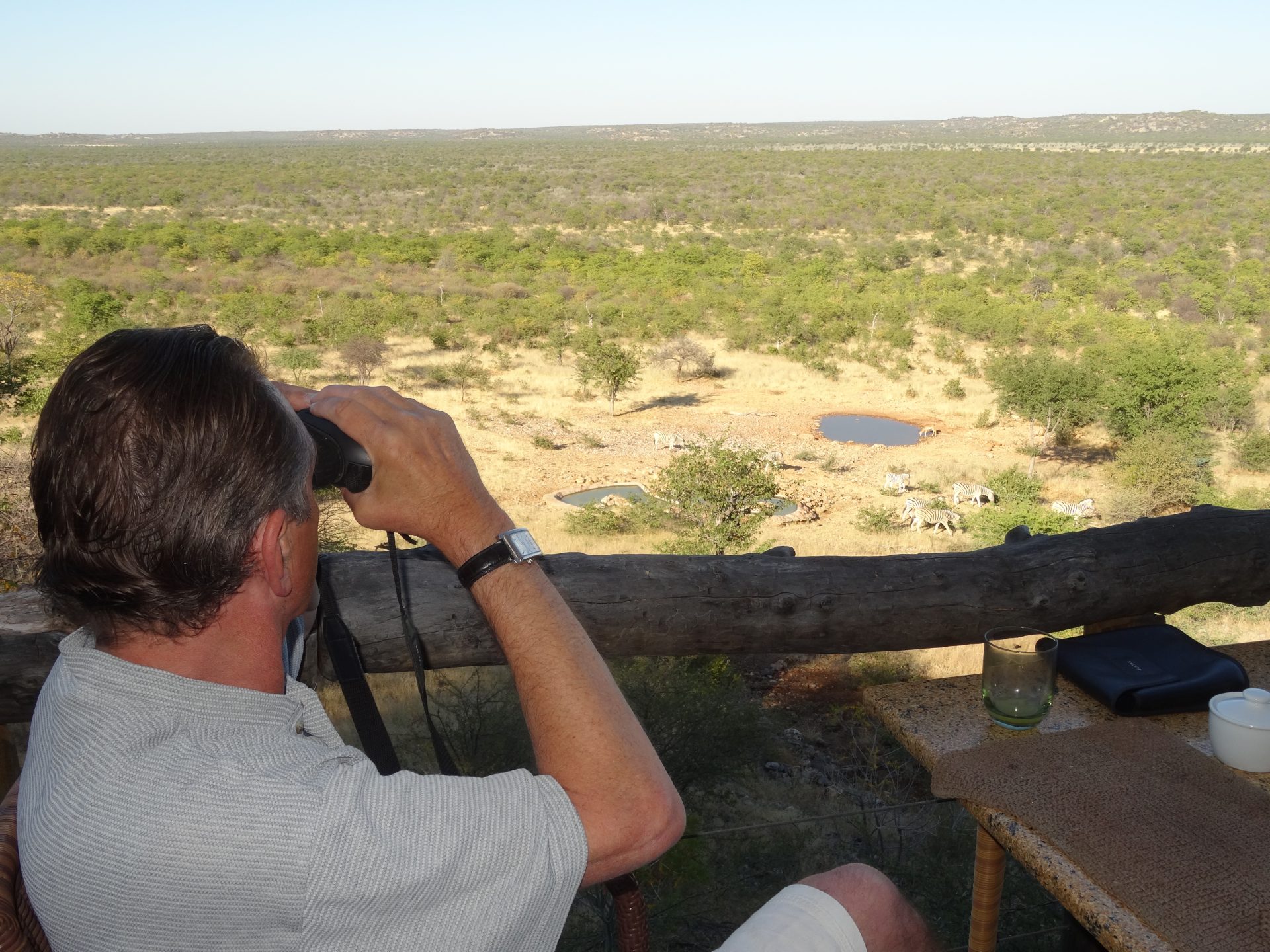
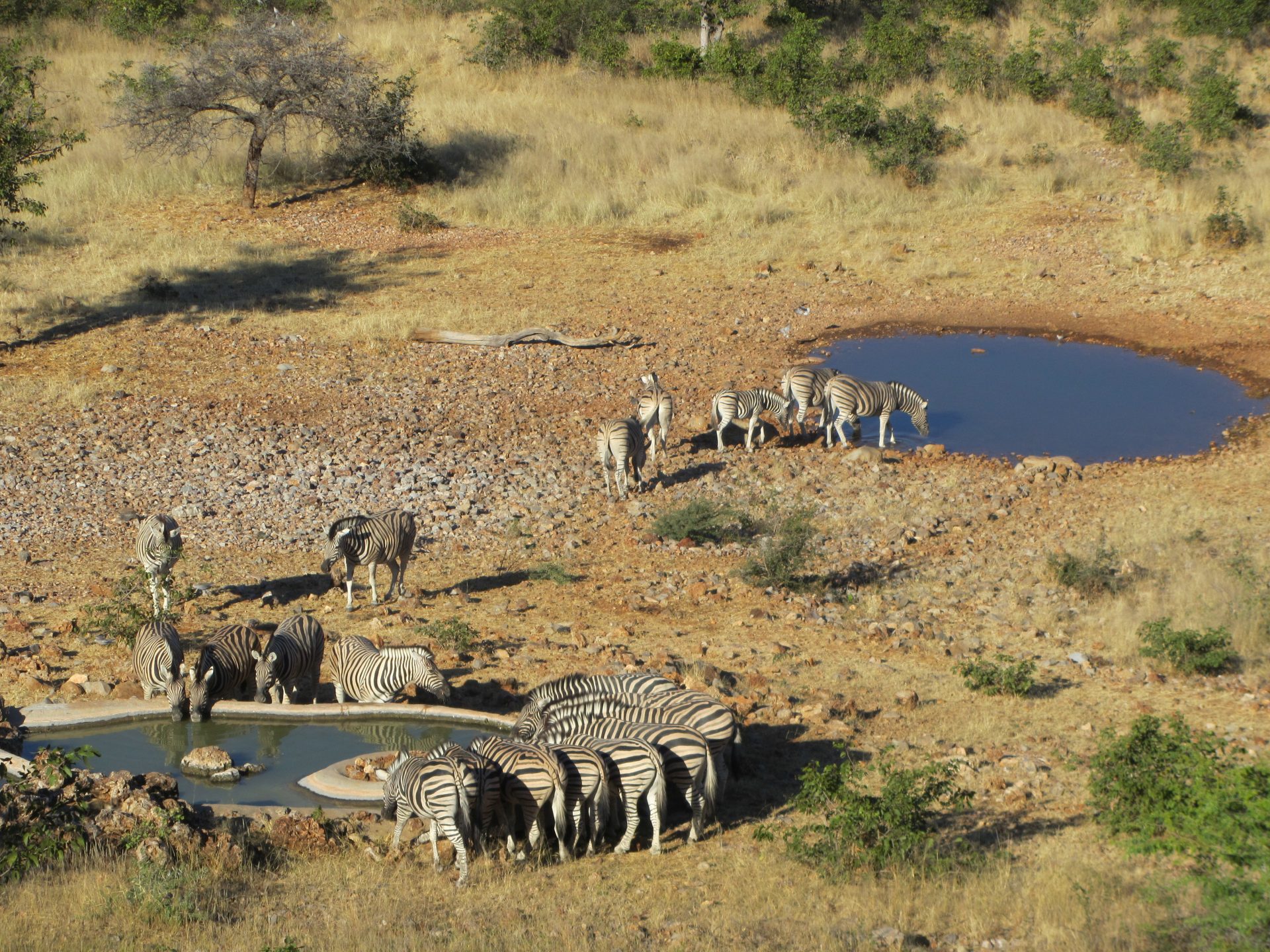
The waterhole is well frequented during the day too. A big bull waterbuck with its distinctive spiralled and curved horns lingers for a few hours. And a small herd of nervous impala are here in the heat of the day. The African sunset is swift yet spectacular and the sundowner cocktails are swift and spectacular too. Kudu is on the menu this evening – evidently they have too many of them on the reserve so they’re fair game. We spend another couple of hours overlooking the waterhole but only white rhino and giraffes appear. We have become blasé so quickly. With the binoculars, I spot my friend the eagle owl (responsible for the bog in the bag incident). He’s strutting around the waterhole looking for rodents. We strike up a conversation with a pleasant retired South African chap who, despite being happily married, travels alone to the National Parks of Southern Africa. He tells us we must visit Chobe in Botswana, “……it’s the best wildlife park in the world”. Whilst chatting he points animatedly at the walkway leading to our chalet “Quick, look at them.” he says. Shuffling away from us is an adult porcupine followed by two tiny scuttling adolescents, mini replicas of the adult. How does she give birth to such spiky creatures?
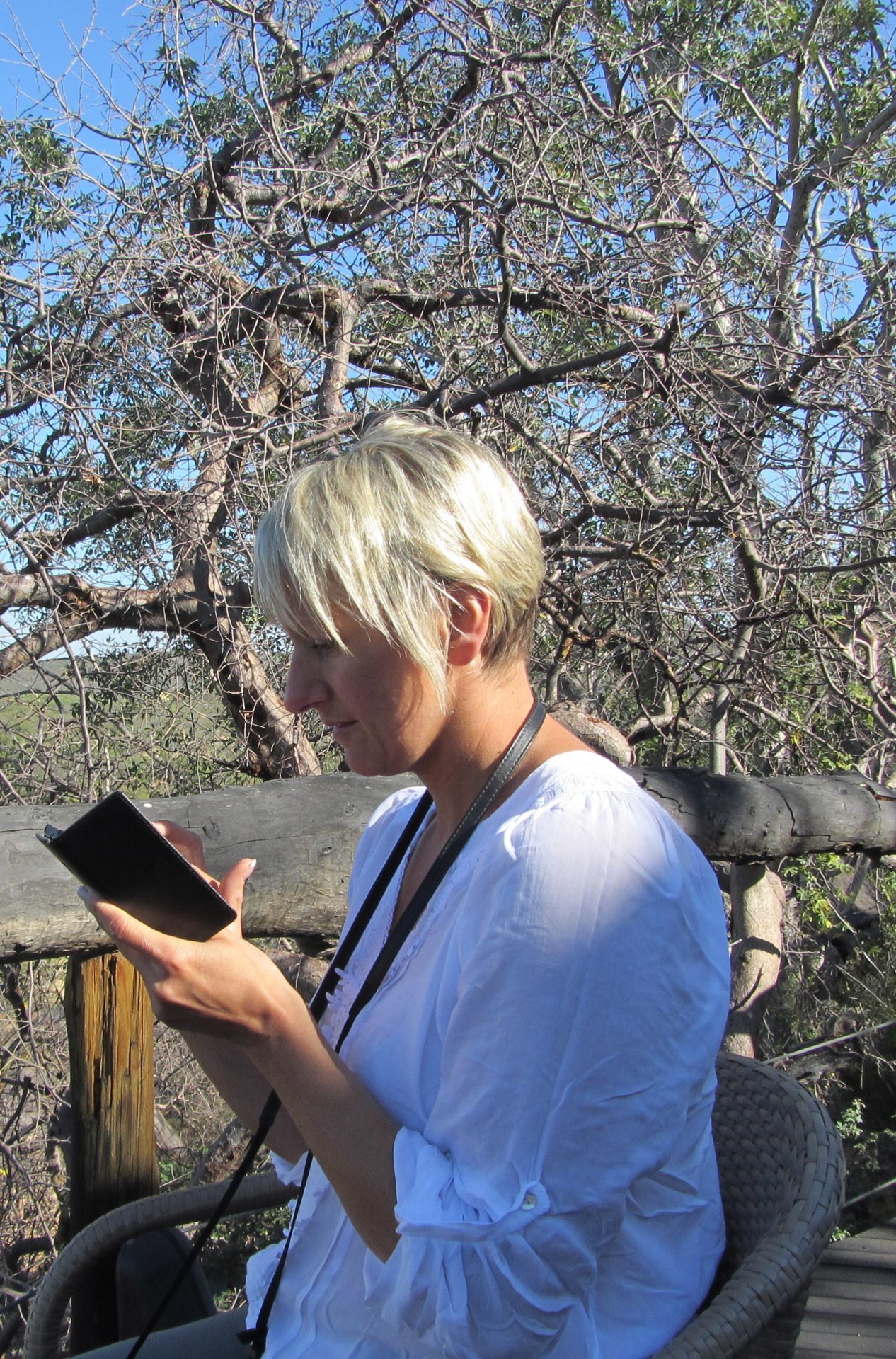
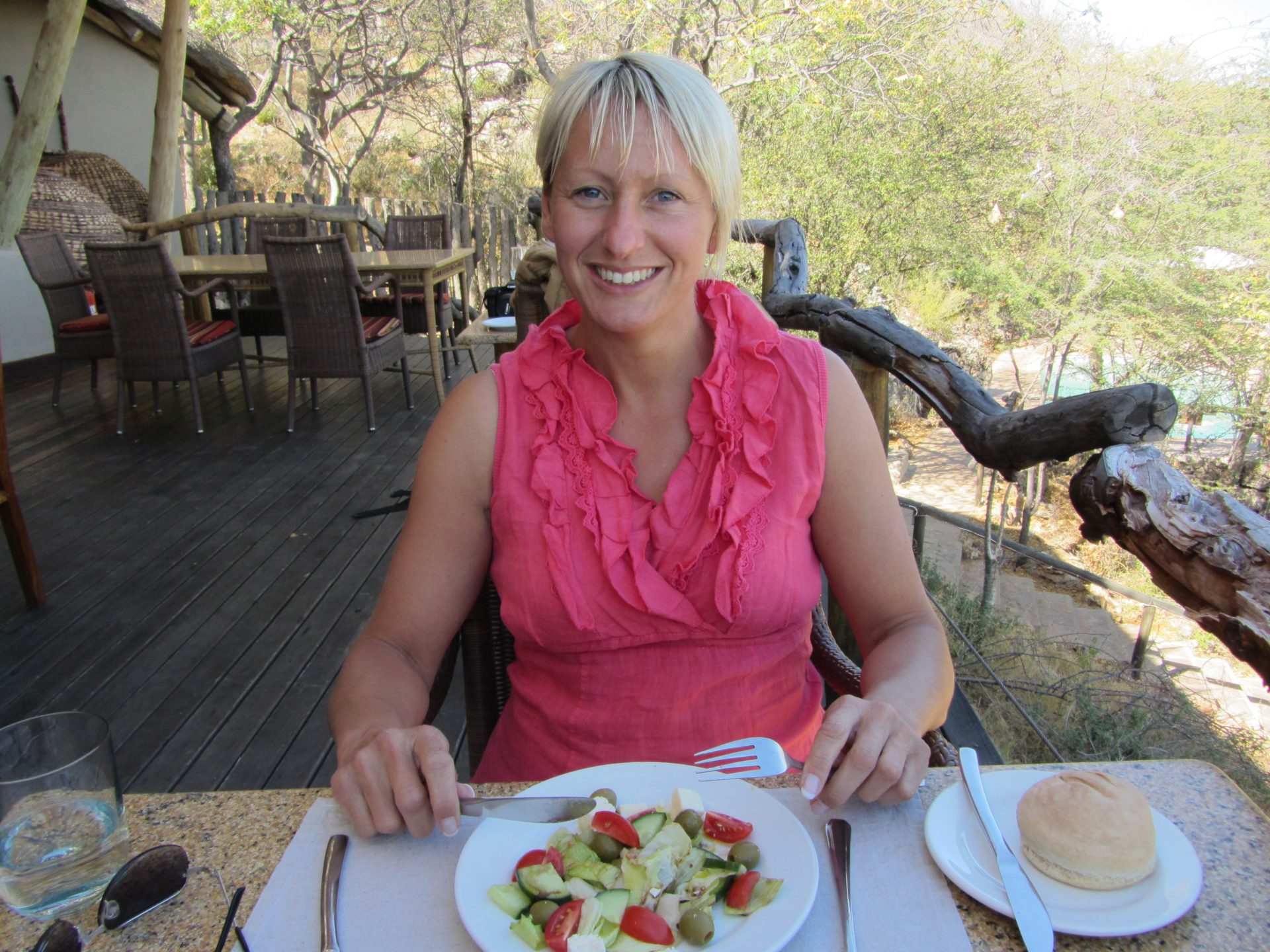
Under the stars, overlooking the bush, a fire pit has been lit. We enjoy the final drink of the day and reflect on our quite remarkable journey through Namibia. There can be no other place on earth quite like it. I tell Jo what a thrill and a pleasure it is to share this adventure with her. She says that it has exceeded her wildest dreams and that she has loved Namibia and sometimes been overwhelmed by the beauty of the land, the animals, the people. But it’s not just that – it’s like living in prehistory. It’s how one imagines the whole world might have been, once, long ago, before it was engulfed by humanity. I guess I knew Jo would appreciate this and truly cherish the oldest continent.
Jo’s back is healed. We must leave Ongava and head back into Etosha.
